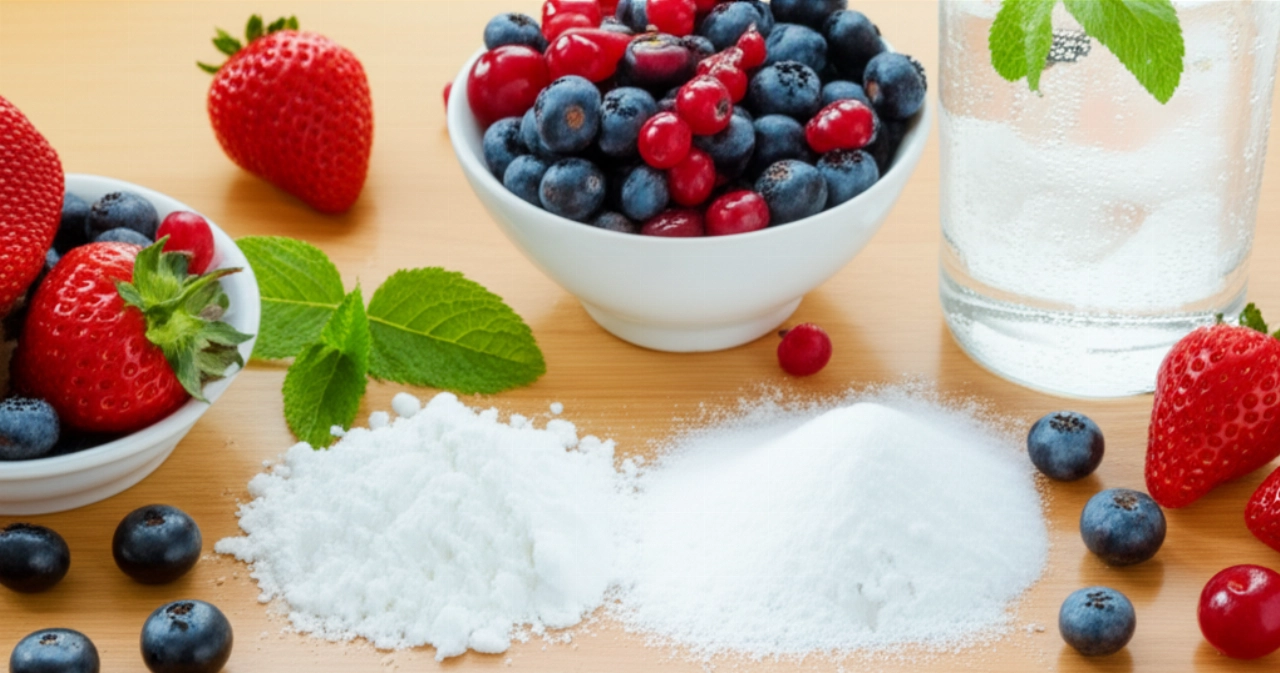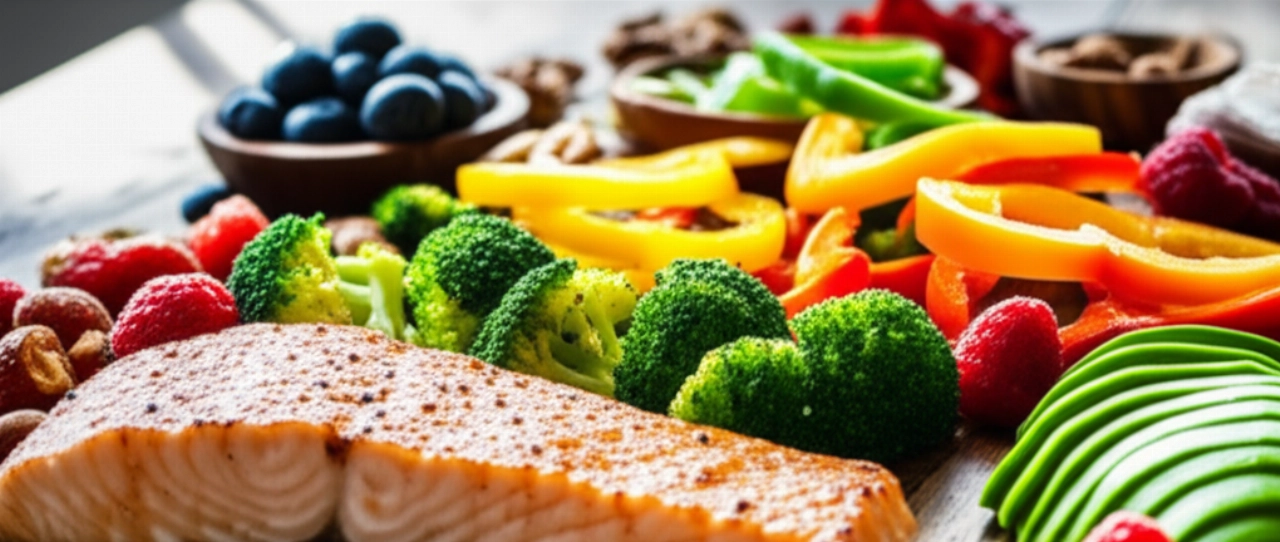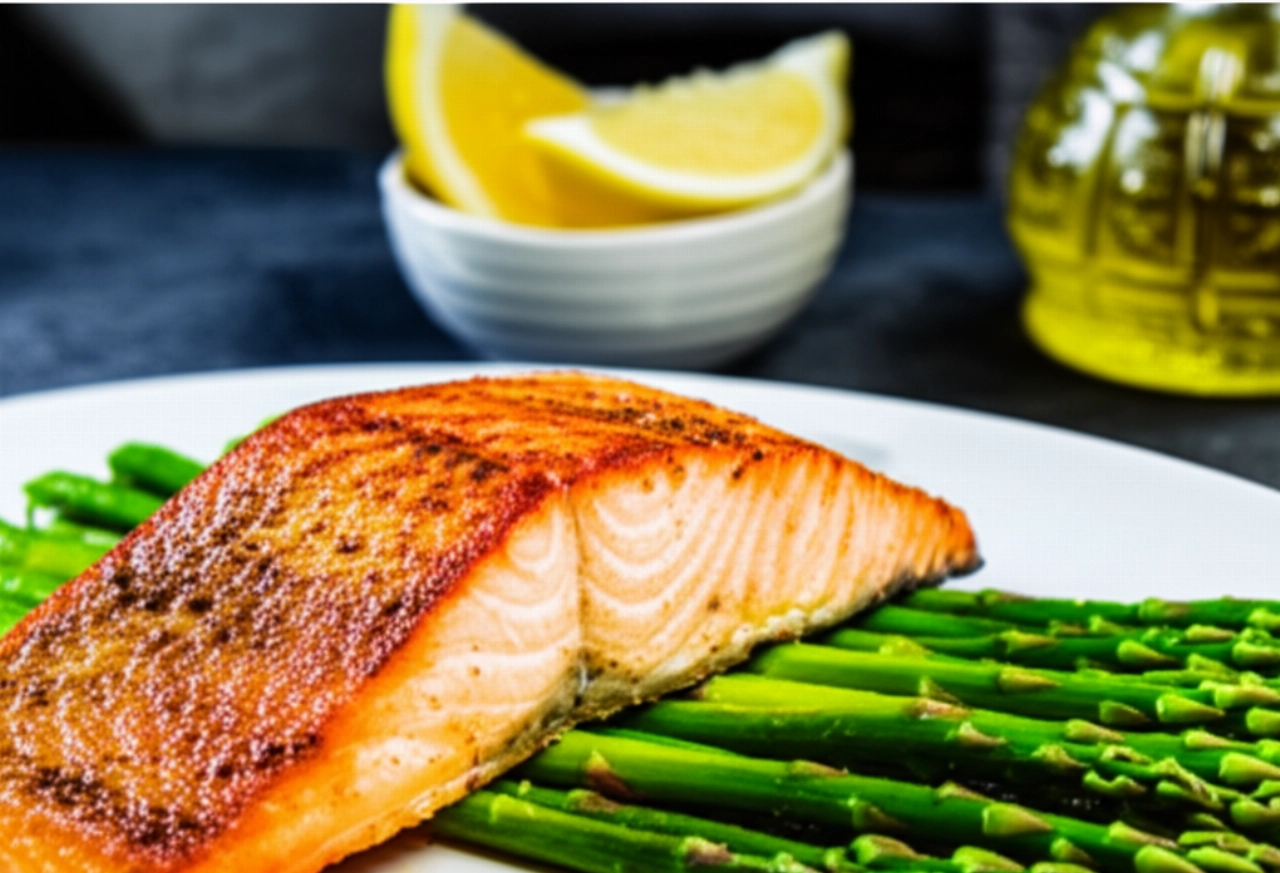How many times have you asked yourself: "Can I really eat something sweet on a diet?" The desire for a satisfying taste is a natural part of our human experience, but when it comes to losing weight, sweeteners seem to be at the center of a heated debate.
Navigating the world of diet sweeteners can seem like a labyrinth. Between those who demonize them as chemical poisons and those who praise them as the solution to every weight problem, confusion reigns supreme. You might fear they make you gain weight, are harmful to your health, or simply won't help you reach your goals. Perhaps you've tried to eliminate them entirely, feeling deprived and ending up giving in to much worse temptations, rich in refined sugar and empty calories.
Enough with the doubts and forced renunciations. In this guide, I will walk you through the world of sweeteners, revealing the science behind them and showing you how they can become a valuable ally for your well-being and weight loss. You'll discover which ones to choose, how to use them intelligently, and, most importantly, how to enjoy the pleasure of sweetness without compromising your progress. Get ready to transform your relationship with food, one mindful bite at a time.

Sweetener Confusion: Debunking Myths for Mindful Weight Loss
The first step to making intelligent choices is to free yourself from the fog of misinformation. Too often, sweeteners are labeled en masse, without distinguishing between different types and their real effects on our bodies. It's time to debunk some of the most common myths that fuel your nutritional confusion anxiety.
Myth #1: "All sweeteners are bad and chemical."
False. There are naturally derived sweeteners (like Stevia or Erythritol) and other synthetic ones (like Aspartame or Sucralose). Scientific research has widely demonstrated the safety of most sweeteners approved by regulatory bodies (such as EFSA in Europe or the FDA in the USA) when consumed within the acceptable daily intake (ADI) limits. The problem is not "chemistry" itself, but the dose and context of use.
Myth #2: "Sweeteners make you gain weight or increase sugar cravings."
Complicated. Calorie-free sweeteners do not provide calories, so they don't "make you gain weight" per se. However, their use can keep your taste threshold for sweetness high, making natural flavors less appealing. Some studies suggest a potential impact on the gut microbiota or metabolic response, but the evidence is still under study and not conclusive. The key is moderation and not using them as an excuse for an unbalanced diet.
Myth #3: "Sugar is better, at least it's natural."
Misleading. Sugar, even "cane" or "whole" sugar, is still sugar. It provides calories and has a high glycemic index, causing insulin spikes that can promote fat accumulation and subsequent feelings of hunger. Sweeteners, when used judiciously, can help you reduce overall calorie intake and better manage blood sugar levels, contributing to better weight control and daily energy.
Understanding these distinctions is crucial to overcome the frustration of past failures, often caused by overly rigid approaches or misinformation. It's not about demonizing or praising, but about choosing with awareness.

Diet Sweeteners: The Essential Guide to Choosing and Using Them Intelligently
Now that we've clarified some myths, let's look at the most common sweeteners and how to integrate them into your weight loss journey without compromising taste or your health. Remember, the watchword is always balance and moderation.
Stevia: Sweetness from Nature
- What it is: Extracted from the leaves of the plant Stevia rebaudiana. Its sweetening compounds, steviol glycosides, are hundreds of times sweeter than sugar.
- Advantages: Natural origin, zero calories, does not raise the glycemic index, suitable for diabetics.
- Disadvantages: Some people perceive a licorice-like or bitter aftertaste, especially in high concentrations.
- How to use it: Perfect for sweetening hot beverages (coffee, tea, herbal teas), yogurt, smoothies. Powdered versions for baking also exist, but pay attention to the dosage to avoid aftertaste.
Erythritol: The Friendly Sugar Alcohol
- What it is: A sugar alcohol (or polyol) naturally found in some fruits and fermented foods. It has about 70% of the sweetness of sugar, but almost zero calories.
- Advantages: Zero calories, does not raise the glycemic index, well-tolerated digestively compared to other sugar alcohols (like xylitol or maltitol), does not cause tooth decay.
- Disadvantages: In very high doses, it can cause a slight laxative effect or bloating in sensitive individuals. It has a slight cooling effect in the mouth.
- How to use it: Excellent for baked goods, homemade jams, beverages. Its crystalline texture makes it similar to sugar.
Xylitol: The "Birch Sugar"
- What it is: Another sugar alcohol, often extracted from birch or corn. It has a sweetness similar to sugar and about 40% of its calories.
- Advantages: Reduced calorie intake, does not cause tooth decay, has a taste very similar to sugar with no aftertaste.
- Disadvantages: Can have a more pronounced laxative effect than erythritol if consumed in large quantities. Warning: it is toxic to dogs!
- How to use it: Great for desserts, chewing gum, oral hygiene products.
Artificial Sweeteners: Sucralose, Aspartame, Saccharin
- What they are: Synthetic compounds with very high sweetening power and zero calories.
- Advantages: Wide availability, heat stability (sucralose), absence of calories.
- Disadvantages: Debates about their long-term safety (although regulatory agencies consider them safe within limits), potential impact on the gut microbiota, for some an "artificial" taste.
- How to use them: In moderation. They are often found in "light" or "zero" products. For home use, prefer Stevia or Erythritol if you are looking for more natural alternatives.
Choosing the right sweetener is not just a matter of calories, but of how it fits into your macronutrient balance and lifestyle. It's not about finding a "magic pill," but about making informed choices that support your journey toward sustainable weight loss.

Beyond Taste: How the Right Sweeteners Support Your Well-being and Energy
The goal of a diet is not just to lose weight, but to gain well-being, energy, and confidence in your body. Sweeteners, when used strategically, can be an important piece of this puzzle, helping you overcome the fear of hunger and deprivation.
Craving Management and Glycemic Control
One of the biggest obstacles in weight loss is fighting sweet cravings. Calorie-free sweeteners allow you to satisfy that desire without adding superfluous calories or causing the glycemic spikes typical of sugar. This helps maintain stable blood sugar levels, preventing drops in energy and sudden hunger that often lead to poor food choices.
Journey Sustainability
A diet that makes you feel constantly deprived is a diet destined to fail. The frustration of past failures is often linked precisely to this sense of renunciation. The intelligent integration of sweeteners can make your journey more enjoyable and, consequently, more sustainable in the long term. Being able to enjoy a sweet coffee, a yogurt with a touch of sweetness, or a light dessert occasionally, without guilt, is fundamental for your serenity and for keeping your motivation high.
Focus on Nutritional Quality
By using sweeteners, you can reduce your intake of added sugars and calories, freeing up space for more nutritious foods. This allows you to focus on a diet rich in fiber, protein, vitamins, and minerals, which are the true pillars of your metabolism and overall health. It's not about replacing all sugar with sweeteners, but about using them as a tool to improve the overall quality of your diet and achieve your ideal weight goals more effectively and satisfyingly.
From Doubt to Clarity: Why a Personalized Plan is Your True Sweet Solution
We've explored the world of sweeteners, debunked myths, and understood how to use them intelligently. But the truth is, every person is unique. What works for one might not work for another. Your history, habits, preferences, and body deserve an approach that goes beyond generic information.
This is where Dietasnella.it's philosophy comes in. We don't offer you a "food list" or a pre-packaged diet that will make you feel the usual fear of hunger and deprivation. Our mission is to provide you with a personalized journey, based on science and a deep understanding of your real needs. We've seen the frustration of past failures and the lack of time and motivation that afflict so many. That's why our approach is built to be:
- Clear: No nutritional confusion. Only precise and easy-to-follow instructions.
- Sustainable: Not a crash diet, but a lifestyle change you can maintain over time, without sacrificing taste.
- Personalized: A tailor-made plan for you, taking into account your preferences, rhythms, and specific goals.
- Supported: You'll never be alone. Our team of experts will be your trusted nutritional coach, ready to guide and motivate you.
Imagine no longer having to fear the scale, feeling full of energy, loving healthy food, and finally having the confidence in your body you've always desired. This is not a dream, but the result of a well-structured and personalized journey. Sweeteners can be a small, but significant, ally on this path, but they are only one part of a much broader and more complete picture.
Frequently Asked Questions about Diet Sweeteners
1. Are all sweeteners the same and safe for health?
No, they are not all the same. They differ in origin (natural or artificial), sweetening power, and potential metabolic impact. Most approved sweeteners are considered safe for health if consumed within the acceptable daily intake (ADI) limits, established by rigorous scientific research. It is always advisable to vary and not overuse them.
2. Can I use sweeteners unlimitedly without consequences on weight?
Even though calorie-free sweeteners do not provide calories, they should not be used unlimitedly. Overuse can maintain or even increase dependence on sweet taste, making it harder to appreciate the natural flavors of foods. Furthermore, some studies suggest that excessive consumption could negatively impact the gut microbiota, although research is still ongoing. Moderation is always key.
3. Do sweeteners cause bloating or digestive problems?
Some sweeteners, particularly sugar alcohols (like erythritol, xylitol, or maltitol), can cause bloating, cramps, or laxative effects in high doses, especially in sensitive individuals. This happens because they are not completely absorbed in the small intestine and ferment in the colon. If you are sensitive, start with small amounts and observe your reaction.
4. Do sweeteners make me hungrier or increase sweet cravings?
This is a point of debate in the scientific community. Some theories suggest that sweet taste, even without calories, can trigger an insulin response or influence hunger hormones, leading to an increase in appetite or sweet cravings. However, the evidence is conflicting, and the effect varies from person to person. The important thing is the overall approach to your diet and not relying solely on sweeteners to manage hunger.
5. What is the "best" sweetener to use on a diet?
There is no absolute "best" sweetener, as the choice depends on personal preferences, individual tolerance, and specific use. Stevia and Erythritol are often preferred for their natural origin and low glycemic impact. The advice is to experiment in moderation to find what best suits your taste and body, always within the framework of a balanced and varied diet.
Your Journey Towards Mindful Sweetness Starts Now
We have navigated the world of sweeteners together, transforming confusion into clarity and fear into awareness. You've discovered that you don't have to give up the pleasure of sweetness to achieve your goals, but that the key is to make informed and intelligent choices.
Perhaps you think it's too complex to apply all this information on your own, or that you won't have time to cook tasty and healthy dishes that fit your busy life. Or maybe, after many failed attempts, the fear of not succeeding is still strong, and the dread of the scale blocks you. I perfectly understand these hesitations. It's normal to feel this way after trying many paths without success.
But your body deserves a clear path that leads you to real and lasting results. A path that doesn't make you feel deprived, but gives you energy, confidence, and the serenity of having a partner to guide you.
The first step is not a restrictive diet, but understanding your unique needs to create a tailor-made plan for you. It's free, no obligation, and will give you the map to reach your goal. Stop feeling frustrated and confused. Click here, tell us about yourself, and discover how you can finally reach your ideal weight feeling great. Start transforming your relationship with food now!





